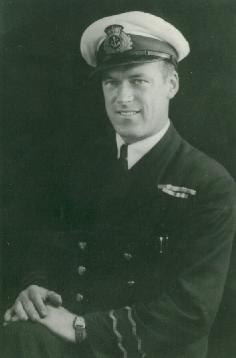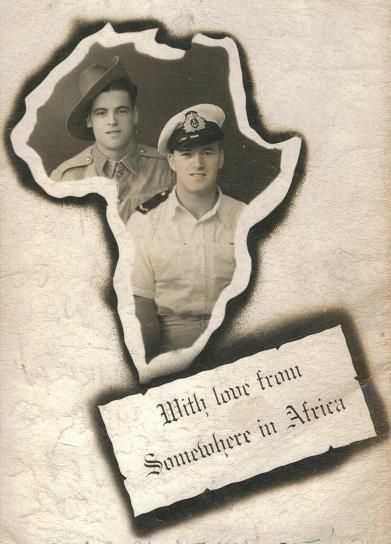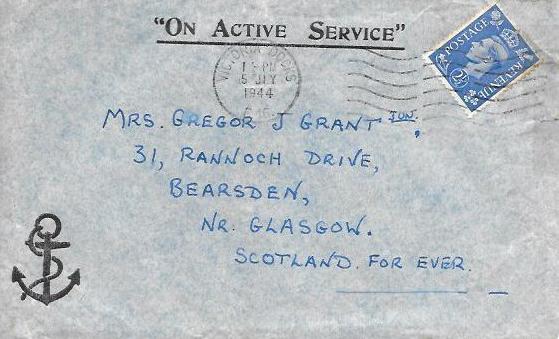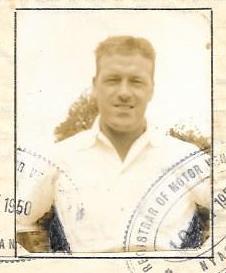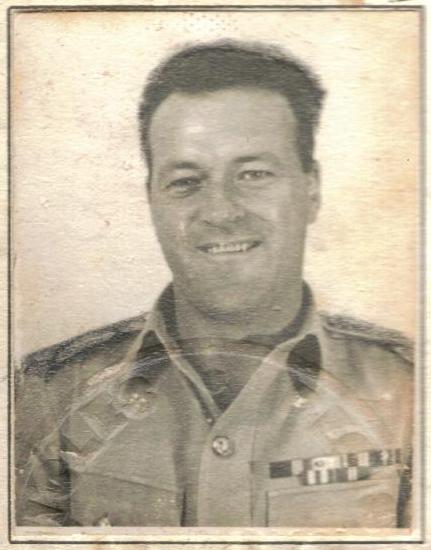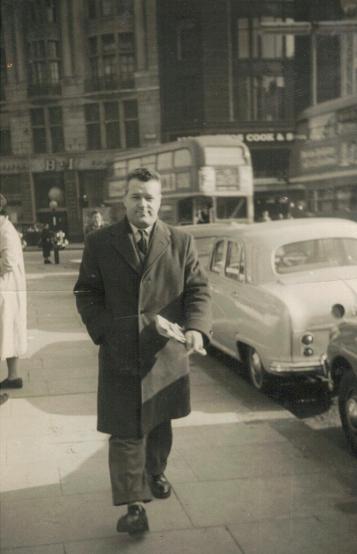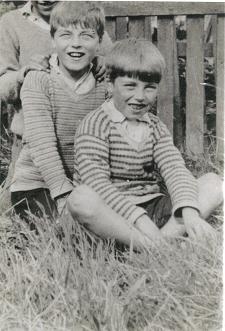To:
|
Mrs. Elizabeth B. Grant,
31, Rannoch Drive,
Bearsden,
Nr. Glasgow,
Scotland.
|
From:
|
Norman D. McIntyre,
M.V. “Lucellum”,
Messrs. Norton, Lilly, inc.
Wall Street,
New York.
|
12th March, ‘45
V-MAIL
Off the Coast of Massachusetts
Dear Eba,
I got your letter OK at Falmouth, and was very pleased to hear that you are writing to Stanley quite often, as there are very few fighting men in the globe, who appreciate mail more, than the extremely unfortunate hombres in Burma.
The boys fighting in Germany have a regular issue of top brand cigarets (sic), chocs, and above all when they are granted leave, they can be at their own threshold in two days; not so the poor guys out East with none of the above diversions or amenities, but instead they have mosquitoes, snakes, intense heat, scorpions, ants, Bombay canaries (large beetle), torrential rain and last but not least NO WHITE GIRLS.
To think that a real good-looking young man like Stan, hasn’t spoken to a British or European girl since he left Nairobi, Kenya (over a year ago) is quite tragic.
So thanks again, sister, for remembering Stan; it’s one way to make me happy as a king.
Right now we are pitching and rolling something awful, so if my writing looks a little wavy, I hope you’ll forgive me; she’s a lovely ship, Eba, and is on the finest little shuttle-service in all the world, so I’m keeping mum till at least July when I hope to spend a few memorable days down at South Bute.
NEW YORK CITY right now is under a midnight curfew, so famous night spots like El Morroco (sic), Copacabana, Latin Quarter, La Martinique, Café Zanzibar etc. etc. all fold up at 0000. Quite revolutionary for the Broadway Babies and late-date NewYorkers. This applies to all cabarets, speak easies, dime a dance joints, tap-bars and bowling alleys, which leaves the only amusements open:- movies, restaurants, hotels, USO clubs, drug stores.
Then the cigaret (sic) is developing into the biggest racketeer attraction since the rosy days of “Dutch” Schultz and his mob during the prohibition era.
Yes-sirree, things are getting’ mighty active round these parts, but I maintain that it’s a temporary hoax by the W.P.B. to stave-off inflation.
But even with all these restrictions, I’ll back New York right now against peace-time London, easy.
About your shoes, Eba my dear, it all depends on old Father Time, and you know that if I can possibly manage to get them, there’s nothing’ll stop me; but where cargo-ships crew get less money & more days, octane-ship crews get more money & less hours.
I think you’ll be seeing me sometime in April all going well, and King Neptune willing. Remember the submarine campaign is anything but over, and they have lots of new devices.
I’ll try not to forget the Automobile mags for Gregor and chewing-gum for the Katzenjammer kids, but boy, gum is as scarce as nylon stockings, as Wrigleys orders from Catalina Island go thro’ New York in transit, for the G.I.’s in Europe and India.
Well, my bonny lass, I guess I’ll have to wind-up now, and write to the sweetest WAC in the U.S. Army; she’s a real looker and hails from Carson City, NEV. And she isn’t the least bit expensive. Just a lonely army gal waiting on a not so lonely navy guy.
So long Eba
Your loving brother,
Norman
